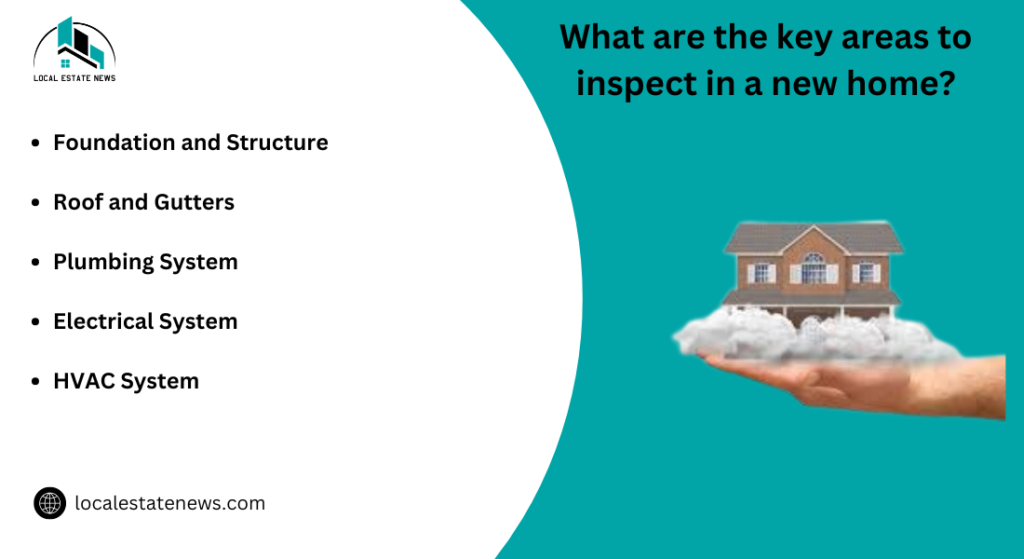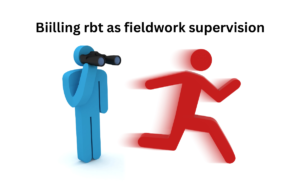Buying a home is one of the most significant investments you will make in your lifetime. The property is in good condition and this is where a thorough house inspection comes into play. A home inspection helps identify potential issues that could require costly repairs and gives you a clearer picture of the properties overall condition. Knowing what to look for and the process can save you from unexpected surprises after you move in House inspection tips .
We provide essential house inspection tips to help you navigate the inspection process confidently. From understanding what to check for to preparing for the inspection, we have covered all the bases to ensure you are well-informed. Our tips include insights on checking structural integrity, electrical systems, plumbing, and more, ensuring you make a well-rounded assessment of your potential new home.
What should I check for in a house inspection?
When conducting a house inspection, it is essential to know what specific areas to focus on to ensure you are making a sound investment. Key areas to check include the roof, foundation, plumbing, electrical systems, and HVAC systems. The roof should be examined for any signs of damage, missing or curling shingles, as well as potential water intrusion points around chimneys and vents. The roof is in good condition can save you from significant repair costs down the line.
Inspecting the foundation, it supports the entire structure. Look for any visible cracks or signs of shifting, which could indicate more severe structural issues. Plumbing House inspection tips should involve checking for leaks, water pressure, and the condition of pipes. Faulty plumbing can lead to water damage and mold, which are expensive to remediate. Electrical systems need to be thoroughly checked to ensure they are up to code and functioning correctly, as faulty wiring poses a fire risk.
How do I prepare for a house inspection?
Preparing for a House inspection tips involve several steps to ensure the process goes smoothly and effectively. Start by choosing a qualified home inspector. Ask for recommendations from your real estate agent, and ensure the inspector has the necessary certifications and experience. It is a good idea to attend the inspection so you can ask questions and get a clear understanding of any issues that arise.
Before the inspection, make a list of any specific concerns or areas you want the inspector to focus on, the roof, attic, or basement. Ensure all utilities are turned on, and provide easy access to areas like the attic, basement, and crawl spaces. This preparation helps the inspector perform a thorough examination and prevents delays, reviewing the sellers disclosure documents before the inspection can help you identify any previously reported issues that need closer examination.
What are the key areas to inspect in a new home?
When inspecting a new home, focus on key areas that can reveal the overall condition and potential issues. Start with the roof and attic, checking for any signs of water damage or improper ventilation. The attic can reveal hidden problems like mold or insulation issues. Next, examine the basement and foundation for cracks, water intrusion, or signs of structural problems, which can be costly to repair.
The plumbing system is another critical area. Check for leaks, water pressure, and the condition of pipes and fixtures. That all electrical outlets and systems are up to code and functioning correctly, as electrical issues can pose safety hazards, evaluate the HVAC system to ensure it is in good working order, as replacing these systems can be expensive. Thoroughly inspecting these key areas, you can make an informed decision about the properties condition and any necessary repairs.

How can I find a qualified home inspector?
Finding a qualified home inspector is a crucial step in ensuring that your potential new home is in good condition. Here are some essential tips to guide you in choosing the right professional for the job:
1. Check Certifications and Licensing Ensure that the home inspector holds current certifications and licenses. You can verify this information through your states regulatory body or professional associations the American Society of Home Inspectors (ASHI) and the International Association of Certified Home Inspectors (InterNACHI). These organizations often require their members to adhere to a code of ethics and standards of practice, providing an additional layer of trust and professionalism.
2. Ask for Recommendations Start by asking friends, family, and your real estate agent for recommendations. Personal referrals can provide insights into the inspectors reliability and thoroughness. Its also helpful to read online reviews but remember to consider the overall pattern of feedback rather than focusing on individual comments.
3. Evaluate Experience and Technology Choose an inspector with extensive experience and access to advanced technology. Tools infrared cameras, moisture meters, and electronic radon monitors can help detect issues that are not visible to the naked eye. Inspectors who use these tools can provide a more complete assessment of the properties condition.
What questions should I ask during a house inspection?
Asking the right questions during a House inspection tips can help you better understand the condition of the property and any potential issues. Here are some key questions to consider:
1. Can you explain this issue in detail? When the inspector points out a problem, ask for a detailed explanation. Understanding the severity and implications of an issue will help you make informed decisions about repairs and maintenance.
2. How urgent is this repair? Not all issues require immediate attention. Ask the inspector to prioritize the identified problems and explain which ones need to be addressed right away and which can wait. This will help you budget for necessary repairs and avoid unexpected costs.
3. Are there any potential problems that you foresee? Experienced inspectors can often predict potential issues based on current conditions. Asking about potential future problems can help you plan for long-term maintenance and prevent costly repairs down the line.
How important is it to attend the house inspection?
Attending the House inspection tips are highly recommended for several reasons:
1. Gain Firsthand Knowledge Being present during the inspection allows you to see the issues firsthand and ask questions in real time. This direct interaction helps you understand the condition of the property better and makes the written report easier to interpret later.
2. Understand the Inspectors Findings While reading the inspection report is crucial, hearing the inspector explain their findings in person can provide additional context and clarity. You can ask for immediate explanations and see exactly what the inspector is referring to, which is particularly helpful for complex issues.
3. Build Confidence in Your Purchase Decision Attending the inspection gives you confidence in your purchase decision. You will have a clearer understanding of any repairs needed and can factor this into your negotiations with the seller. This proactive approach ensures there are no surprises after you move in.
What should I look for in the roof during an inspection?
Inspecting the roof during a House inspection tips are for identifying potential issues that could lead to costly repairs. Here are key areas to focus on:
- Shingles and Roofing Material:
- Check for missing, curled, or damaged shingles. Shingle granules in gutters are a sign of wear and tear.
- Look for moss, algae, or rust spots, which can indicate moisture problems or deterioration of roofing materials.
- Flashing and Seals:
- Inspect the flashing around chimneys, skylights, and other roof penetrations for gaps or cracks. Damaged flashing can lead to leaks and water damage.
- Ensure that seals around vents and other penetrations are intact to prevent water from seeping into the roof structure.
- Structural Issues:
- Look for signs of sagging or uneven roof planes, which could indicate structural damage.
- Check the condition of the fascia, soffits, and gutters. Proper drainage is essential to prevent water damage.
How do I identify potential plumbing issues in a home inspection?
Identifying plumbing issues during house inspection tips can save you from future water damage and costly repairs. Focus on these key areas:
- Pipes and Fixtures:
- Inspect visible pipes for signs of corrosion, leaks, or damage. Pay attention to joints and connections.
- Test faucets, showers, and toilets for water pressure and drainage. Slow drainage or low pressure can indicate blockages or leaks.
- Water Heater:
- Check the age and condition of the water heater. Look for signs of rust or leaks around the base.
- Ensure the appropriate temperature settings and that safety features, pressure relief valves, function correctly.
- Basement and Crawl Spaces:
- Examine these areas for signs of moisture, water stains, mold, or musty odors. These can indicate leaks or poor drainage.
- Look for any pooling water or dampness around the foundation, which can suggest plumbing leaks.
What electrical problems should I check for in a house inspection?
Electrical issues can pose serious safety risks, so thorough House inspection tips are essential. Here’s what to focus on:
- Wiring and Panels:
- Inspect the electrical panel for proper labeling and signs of wear, rust or scorch marks. The panel has enough capacity for the homes electrical needs.
- Check for outdated wiring, knob-and-tube or aluminum wiring, which may need to be replaced to meet current safety standards.
- Outlets and Switches:
- Test all outlets and switches to ensure they are functioning correctly. Look for any warm to the touch, as this can indicate wiring issues.
- Ensure that Ground Fault Circuit Interrupters (GFCIs) are installed in areas prone to moisture, kitchens and bathrooms, to prevent electrical shocks.
- Lighting Fixtures and Appliances:
- Inspect all lighting fixtures for proper installation and operation. Flickering lights can indicate wiring problems.
- Check that all major appliances are properly grounded and connected, and ensure that extension cords are not used as permanent wiring solutions.
Why is inspecting the attic crucial during a home inspection?
Inspecting the attic is a vital part of the House inspection tips these can reveal a range of potential issues that might not be visible elsewhere in the House inspection tips.
1. Insulation and Energy Efficiency: The attics insulation plays a crucial role in maintaining the homes energy efficiency. Proper insulation helps in regulating the indoor temperature, reducing energy bills, and enhancing overall comfort. Inspectors look for gaps, uneven distribution, and compression of the insulation, which could indicate that it needs to be replaced or supplemented. Proper insulation also prevents moisture buildup, which can lead to mold and mildew.
2. Ventilation and Moisture Control: Attic ventilation is essential for preventing moisture problems and maintaining air quality. Poor ventilation can cause the attic to overheat in summer and form ice dams in winter. Inspectors check for adequate soffit, ridge, and gable vents, and may also look for signs of moisture, damp insulation, water stains, and mold growth. Effective ventilation helps in expelling hot, moist air and bringing in cool, dry air, thus protecting the roof and structural components of the House inspection tips.
What should I know about the HVAC system during a house inspection?
The HVAC system is a critical component of any home, and a thorough inspection ensures it is functioning efficiently and safely.
1. Age and Condition of the System: Inspectors will first check the age and overall condition of the HVAC system. Older systems are more prone to breakdowns and might not be as energy-efficient as newer models. They will also look for any signs of wear and tear, rust, leaks, or unusual noises, which could indicate underlying issues.
2. Air Filters and Ductwork: Clean air filters and well-maintained ductwork are essential for the efficient operation of the HVAC system. Inspectors check for dirty or clogged filters and inspect the ductwork for any signs of damage, leaks, or poor insulation. This helps in ensuring good air quality and preventing energy loss. Proper maintenance of these components can significantly improve the systems efficiency and longevity.
How do I check for structural issues in the basement?
The basement is a critical area to inspect for structural integrity, as issues here can indicate broader problems with the houses foundation.
1. Cracks and Water Damage: Inspectors will look for cracks in the walls and floor of the basement. Horizontal cracks can be particularly concerning as they might indicate pressure against the foundation walls, signs of water damage, stains, mold, or dampness, can point to poor drainage or waterproofing issues. These problems can lead to significant structural damage if not addressed promptly.
2. Foundation and Support Beams: The foundation and support beams are inspected for signs of shifting or settling, which can compromise the structural integrity of the House inspection tips. Inspectors check for any bowing or leaning of the walls and ensure that the support beams are in good condition and properly aligned. Identifying and repairing structural issues early can prevent more severe and costly problems in the future.
What are the signs of cosmetic fixes hiding bigger problems?
When house inspection tips, to identify cosmetic fixes that might be hiding more significant issues. Here are some key signs to watch for:
1. Fresh Paint in Isolated Areas: If you notice a freshly painted patch on a wall or ceiling, it might be covering up water damage, mold, or cracks. While fresh paint can enhance the look of a home, uneven or inconsistent painting can indicate attempts to mask underlying problems. Inspect these areas closely for signs of moisture or structural damage.
2. New Flooring in Selective Spots: New flooring in certain areas of the home can be a red flag. This might be an attempt to conceal damage from water leaks or foundational issues. Check the floor for unevenness, warping, or moisture, especially in basements, bathrooms, and kitchens where water damage is more likely to occur.
How do I evaluate the longevity of major appliances during a house inspection?
Evaluating the longevity of major appliances is essential to avoid unexpected expenses after moving in. Here is how to assess them:
1. Check the Age and Maintenance Records: Inspect the appliances for any manufacturer labels or serial numbers that indicate their age. Generally, most appliances have a lifespan of 10-15 years. Ask the seller for any maintenance records to see if regular servicing has been performed, which can extend the life of the appliances.
2. Test Functionality and Look for Signs of Wear: During the inspection, test all major appliances, including the HVAC system, water heater, stove, and dishwasher, to ensure they are in working condition. Look for signs of wear rust, leaks, or unusual noises. These can indicate that an appliance is nearing the end of its useful life and may need replacement soon.
What additional specialty inspections might be necessary?
Depending on the properties location and age, additional specialty inspections might be required to ensure complete evaluation:
1. Mold Inspection: Mold can pose serious health risks and structural damage. If the home is in a humid area or has had past water damage, a mold inspection is crucial. Inspectors use tools like moisture meters and thermal imaging to detect mold in hidden areas like attics, basements, and HVAC systems.
2. Radon Testing: Radon is a colorless, odorless gas that can cause lung cancer. Homes in certain geographic areas are more prone to high radon levels. A radon test can determine if mitigation is needed to ensure safe living conditions.
3. Termite Inspection: Termites can cause extensive damage to a homes structure. A termite inspection is essential, especially in regions where termites are common. Inspectors look for signs of termite activity, mud tubes and wood damage, to prevent long-term structural issues
How should I interpret the home inspection report?
Interpreting a home inspection report is crucial for making informed decisions about your property purchase. Here’s how to approach it:
1. Start with the Summary: The summary section provides a quick overview of major findings, highlighting significant issues that require immediate attention. This section helps prioritize repairs and the severity of problems without sifting through the entire document.
2. Understand the Terminology: Common terms include:
- Functional/Operational: Indicates the item is working as intended.
- Marginal: The item works but may need repairs soon.
- Poor: The item is not functioning and needs immediate attention. These terms helps gauge the urgency of each issue.
3. Focus on Major Issues: Pay special attention to structural problems, electrical hazards, plumbing issues, and safety concerns. These critical aspects can significantly impact the properties value and safety. Reviewing these areas in detail you address the most pressing concerns first.
What steps should I take after receiving the home inspection report?
After receiving the House inspection tips report, follow these steps to address the findings effectively:
1. Discuss with Your Realtor: Review the report with your realtor to its implications and strategize the next steps. They can help interpret the findings and advise on necessary negotiations or repairs.
2. Prioritize Repairs: Categorize issues into major and minor ones. Major issues, structural defects or electrical hazards, should be addressed immediately, either by negotiating repairs with the seller or planning for them post-purchase. Minor issues can often wait but should be monitored and fixed over time.
3. Get Estimates from Professionals: For any major repairs, get estimates from licensed professionals. This helps in the potential costs and deciding whether to negotiate repair credits or request the seller to make the repairs before closing.
How can I negotiate repairs after a home inspection?
Negotiating repairs after a House inspection tips, steps in the home-buying process. Here’s how to handle it:
1. Be Present During the Inspection: Attending the inspection allows you to ask questions and understand the inspectors findings firsthand. This knowledge is invaluable during negotiations as you can confidently discuss the issues with the seller.
2. Use the Inspection Report: Leverage the detailed inspection report to negotiate repairs or request repair credits. Highlight major issues that impact safety or structural integrity to strengthen your position. Provide the seller with the summary and relevant sections of the report to support your requests.
3. Work with a Realtor: Your realtor can help you navigate the negotiation process. They can recommend whether to ask for repairs, request a price reduction, or negotiate a repair credit. An experienced realtor can also help craft a strategy to ensure you get the best deal possible
What tools and gadgets can help during a home inspection?
Equipping yourself with the right tools and gadgets can make home inspections more efficient and thorough. Here are some essential tools for a successful home inspection:
1. Moisture Meter: A moisture meter is vital for detecting water presence in walls, floors, and ceilings. This tool helps identify potential leaks and water damage, which can lead to mold and structural issues. Pin-type meters penetrate surfaces for accurate readings, while pin-less meters provide non-destructive testing.
2. Infrared Camera: Infrared cameras are used to detect temperature variations behind walls and ceilings. These cameras can reveal issues with insulation, electrical systems, and moisture that are not visible to the naked eye. They are particularly useful for spotting hidden leaks and energy inefficiencies.
3. Electrical Testers: Electrical testers, including GFCI testers and voltage detectors, are essential for evaluating the safety of electrical systems. These tools check outlets and wiring configurations, ensuring that the homes electrical system is up to code and functioning properly. They can help identify issues like ungrounded outlets and reversed wiring.
House Inspection Tips: A Must-Know for Every Home Buyer
When it comes to purchasing a home, understanding house inspection tips is crucial for making an informed decision. A thorough inspection can help you identify potential issues that may not be immediately apparent, structural problems, electrical issues, or water damage. A comprehensive checklist, you can ensure that every aspect of the property is examined, from the roof to the foundation. This not only helps in negotiating the price but also in avoiding costly repairs in the future. Whether you are a first-time buyer or a seasoned homeowner, being well-prepared for a House inspection tips will give you peace of mind and confidence in your investment.
In addition to knowing what to look for during an inspection, it is also important to consider the location of your potential new home. The neighborhood you choose will significantly impact your quality of life and property value. For more guidance on selecting the right area, explore our detailed guide on the Best neighborhoods. This resource will help you find a community that meets your lifestyle needs while ensuring that your new home is situated in a desirable and safe area.













